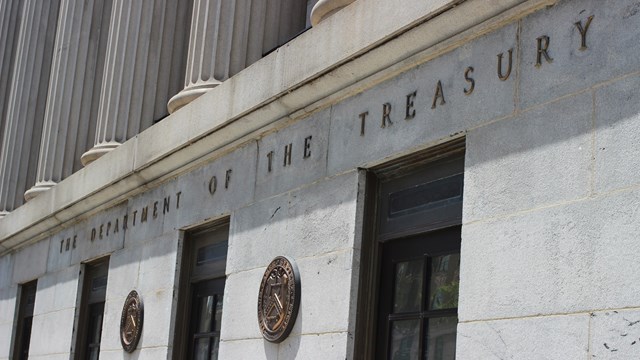Governor Jon Corzine has finished his first year as governor of New Jersey—he won 54 percent of the vote over Republican nominee Doug Forrester in 2004—and has now begun his second year. It's been an extremely eventful year for the governor—including the almost-fatal car accident that left him grievously injured after the SUV he was riding in swerved to avoid another vehicle on the Garden State Parkway and crashed into a guardrail.
Corzine is still recovering, recently having returned to work in the governor's office, and interacting with legislators at the State House.
Looking Back
At the time he announced his run for governor, Corzine was already well known to New Jersey having represented the Garden State in the U.S. Senate in 2001. There he sought to improve the state's transportation network, protect New Jersey's chemical facilities against possible terrorist attack, lobby for stronger environmental regulations and procure federal support for a variety of development projects, including a second passenger railroad tunnel from New Jersey to Manhattan.
Still, there was a kind of mystique surrounding Corzine because of his great personal wealth and background in the financial industry. A partner in the financial giant Goldman Sachs in 1980, Corzine became the firm's chairman and CEO in 1994. He reportedly spent more than $60 million of his own money in his 2000 senatorial campaign.
For all his wealth, says State Senator Ronald L. Rice, D-Newark, chairman of the Community and Urban Affairs Committee and president pro tempore, "Governor Corzine is a down-to-earth person who has an ability to connect with the grass roots. He can relate to someone on a person-to-person basis. There are issues I disagree with him about, but I've never had a problem sitting down and discussing things with him."
Since being elected governor, Corzine is mainly known for his 2006 shutdown of the government. He's also made some appointments—such as U.S. Rep. Bob Menendez to take over his old Senate seat. One of his first, and most controversial, appointments was Zulima Farber for attorney general; Farber eventually resigned her post in the wake of an ethics investigation.
In his State of the State speech this past January, the governor poked fun at himself. "I've learned some new things this past year. I've learned that rollaway cots aren't really comfortable, that the red knot is a bird, and that Asian Longhorned Beetles are a real menace!"
He outlined some of the major achievements in his first year—increasing adoptions of foster children, reducing the structural deficit, replenishing the Transportation Trust Fund and the historic move to legalize civil unions for gay and lesbian New Jerseyans.
Corzine also reflected on his agenda—increasing the number of parks, increasing health care access and affordability for the 1.3 million uninsured New Jerseyans, combating the scourge of gang violence in cities like Camden, reforming archaic civil service regulations and a dire need to reduce property taxes. New Jersey has the highest per-capita property tax rate in the nation but the recent reforms have helped.
Housing Agenda
Corzine is focused on making housing a whole lot more affordable for New Jersey residents. In 2005, while still a senator, he won the Robert J. Corletta Award for Achievement in Affordable Housing, given by the National Association of Home Builders (NAHB) and the Neighborhood Development Corp.
According to Chris Donnelly, a spokesman for the New Jersey state Department of Community Affairs (DCA), the governor's plan mostly involves "the creation of 100,000 affordable units of low-, moderate- and middle-income housing of all types." Details haven't been announced, but according to Donnelly, the types of housing will be "different throughout the state."
In April, Corzine also signed bill A1/S20, a series of property tax reforms he strongly supported. Under the bill, all homeowners, whether single-family or HOA, with incomes up to $100,000 will receive a 20 percent reduction in their property taxes, whether through a credit or a rebate. Those with incomes between $100,000 and $150,000 will receive a 15 percent reduction, and those with incomes between $150,000 and $250,000 will receive 10 percent. The average reduction for senior homeowners is estimated to be nearly $1,250.
Not everyone in the condo and co-op community, however, is a fan of Corzine's housing agenda. "My opinion," says attorney David Byrne of the Lawrenceville-based law firm of Stark & Stark, "is that he's anti-development. He's in favor of closing portions of New Jersey to development—the Highlands, the Pine Barrens—and making it easier for municipalities to reject building permits."
Affordable housing, Byrne continues, "could be more successful if the governor would support the developers' attempts to build low- and moderate-income housing, for example, in the suburbs."
Under current New Jersey law, Byrne explains, the suburban towns can use over-age-55 housing to fulfill affordable housing requirements. Or else, he says, in lieu of encouraging low- and middle-income housing, the towns can send money to have such housing developed in cities like Newark and Jersey City.
State Government Shutdown
One of the highlights of Corzine's governorship is something that few people would wish for—the first total shutdown of government in New Jersey's history. He ordered a shutdown of non-essential government services on July 1, 2006, after he and the legislature (including his fellow Democrats) failed to come to a budget agreement.
During the shutdown, parks, beaches and gambling casinos were closed. Also, drivers' licenses that came up for renewal during that period were extended for one month since there was no one to process them. The freeze didn't end until the morning of July 10, 2006, when a budget agreement was finally reached.
"The government shutdown caused a lot of pain in New Jersey," says Sen. Rice. "I hope it never happens again."
Interestingly, after the shutdown, according to a Quinnipiac Poll, the governor's approval rating went up to 44 percent, the highest it had been since that January. New Jerseyans tended to blame the legislature—not the governor himself—for the budget crisis. (The same poll, by the way, gave Corzine a 50 percent rating this past February.)
Highlights
In addition to housing, Corzine has also been active in quality-of-life issues, especially the environment. His environmental agenda, published during his election campaign, talks about increasing energy efficiency by upgrading building codes, investing in renewable energy, regulating carbon as a pollutant and targeting energy efficiency in state buildings.
And speaking of a different environment, Corzine last year signed the New Jersey Smoke-free Air Act, which bans smoking in restaurants, bars, private office buildings and other indoor places (there is an exemption for casinos). Many bar and restaurant owners complained, but most other residents expressed support.
Sen. Rice believes it's important for the governor to be active in quality-of-life issues, especially in urban areas such as his own—Newark. "Where you have loitering and have litter, there you have crime," he says. Rice also applauded one of Corzine's initiatives—last August, he announced that the state would spend $80 million to buy land for parks and conservation, with funds from the Garden State Preservation Trust Fund.
For many, compared with the McGreevey years, Corzine seems like a new beginning. McGreevey's sex scandal supposedly involving Security Chief Golan Cipel—who denies any relationship and still maintains that he was the victim of sexual harassment by McGreevey—made national headlines. It has no direct echo in the Corzine administration, though the governor has not entirely escaped the whiff of scandal himself. Some critics continue to make political hay over Corzine's former relationship with Carla Katz, president of Local 1034 of the Communications Workers of America, which represents 9,000 state workers. Corzine allegedly gave Katz a no-interest loan to buy a house. Mike Kelly, columnist for The Record, called the relationship a "magical mystery tour," but unlike the McGreevey affair, people outside the state (and many in the state) don't particularly seem to care.
Corzine has pushed for ethics reform, and in his State of the State message, said, "We should push even further with a ban on wheeling-and-dealing and pay-to-play at all levels of government."
Near Tragedy
All of the governor's plans were put on immediate hold on the evening of April 12th, when his state trooper-driven SUV was forced off the Garden State Parkway by an out-of-control pickup and hit a metal guardrail. The pickup fled the scene (the 20-year-old driver was apprehended in Atlantic City a few days after the accident and charged with leaving the scene of an accident), but Corzine and his driver were gravely injured.
Corzine—who was not wearing a seatbelt at the time—had suffered massive breakage to his left leg, including a compound exposed fracture of the femur. The governor's sternum and collarbone were broken, as well as six ribs on both sides of his chest, and one of his lower vertebra was slightly damaged. Rushed to surgery from the accident site, he underwent two more procedures over the next 72 hours.
Corzine's initial prognosis was intimidating—his recuperation was expected to be long and extremely painful. Once again stepping into the power vacuum was Senate President Richard Codey, who functioned as acting governor while New Jerseyans waited anxiously to find out what Corzine's condition would mean to state politics. On April 30th, after 18 days in Cooper Hospital in Camden—11 spent in intensive care—Corzine impressed caregivers and observers alike by leaving the hospital and giving a brief press conference before heading back to the governor's mansion in Princeton to continue his rehabilitation. Despite his speedy release from the hospital, doctors speculated that the governor will need the help of crutches or a cane for several months.
"I understand that I set a very poor example for a lot of young people, a lot of people in general," an emotional Corzine said to the assembled press and onlookers on the day of his release from the hospital. "I certainly hope the state will forgive me. And I'll work very hard to set the right kind of example."
On May 7th, Corzine resumed his duties at the state house in Trenton, getting around on crutches with minimal difficulty. His first order of business was meeting with legislators to deal with his $33 million proposed state budget. It was a back-to-business-as-usual day for a man who has defined his life through his business acumen.
Raanan Geberer is a freelance writer living in New York City and a frequent contributor to The New Jersey Cooperator







Leave a Comment